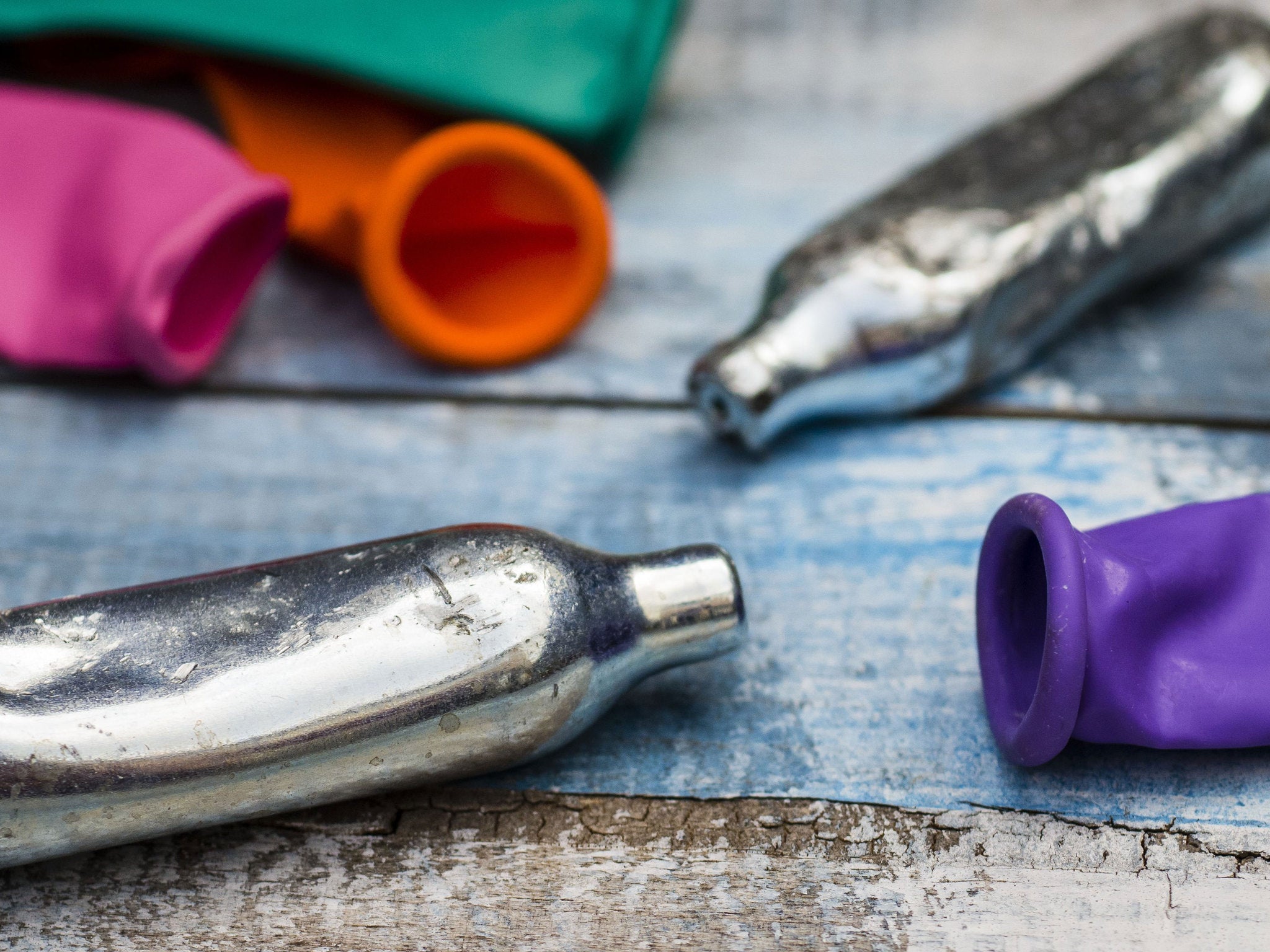The Independent's journalism is supported by our readers. When you purchase through links on our site, we may earn commission.
Doctors warn ‘dangerous’ laughing gas is becoming an ‘epidemic’ amid rise in hospitalisations
Exclusive: We are seeing an ‘epidemic’ of young people’ admitted over abuse of laughing case, warns Dr David Nicholl

Doctors in the UK have warned over an “epidemic” of patients admitted to hospital from laughing gas abuse amid a 257 per cent rise in serious poisonings.
Specialist neurologists and toxicologists speaking with The Independent warned they are seeing young people admitted through emergency departments every two weeks now due to the impacts of nitrous oxide canisters, also called “whippets.”
The Independent understands calls to the National Poisons Information Service have increased by 257 per cent in 2021-22, according to data due to be published later this year.
Data published by the NPIS in September 2021 showed a 3600 per cent increase to 37 people, in 2020-21, and its report said the substance was among the top 10 drugs enquired about for the first time.
However, this is merely the “tip of the iceberg” said Dr Mark Pucci, a toxicologist from Birmingham, as the NPIS only records cases where acute poisoning are flagged.
Nitrous oxide cansiters, called laughing gas or whippets, can be legally obtained and according to research notifications of acute poisoning increased from three in 2011 to 32 in 2020.
In board reports in June, University Hospitals of Coventry and Warwickshire said there had been an increase in theft of the gas from hospitals in recent years.
In September 2021 home secretary Priti Patel asked the government’s independent Advisory Council on the Misuse of Drugs (ACMD) to review the harm caused by nitrous oxide after half a million young people reported taking it in 2019-20.
Dr David Nicholl a neurologist at Sandwell and West Birmingham Hospital Trust has said in a warning on Tik Tok “Myself and my colleagues are seeing an epidemic of young people being admitted to hospital off their legs because they’ve been taking whippets.
“We’re seeing dozens of young people coming into hospital because they’re off their legs, some of whom have life changing neurological injuries…you need to be aware this stuff is legal and its dangerous.”
Speaking with The Independent he said it was extremely difficult to get patients to speak about their experiences with the drug.
Dr Nicholl added there is concern among specialists that the problem is being missed as some medics may not specifically ask about the use of nitrous oxide in young people who attend with unexplained sensory or motor symptoms.
Dr Mark Pucci, from University Hospitals Birmingham FT said patients were now attending A&E regularly, every two weeks, with serious illness related to the drug.
He said: “I looked at my admissions over five years between 2015 and 2020 and we only found six cases admitted but now it’s sort of exponentially increasing. So, it’s almost on a weekly basis, we’re getting admissions now. Usually young people and they tend to present with nerve problems.”
He said young people were coming in with “altered sensation” in their arms and legs, numbness, pins and needles, difficulty walking and in the most severe cases damage to their spinal cord which can cause permanent damage.
The toxicologist said: “I think there’s this misbelief that it’s because it’s a bit of fun and that it’s harmless, [patients] don’t really appreciate potential damage. The ones we see really [tend] to be chronic users over a prolonged period of time.”
He said some patients will have permanent damage, some will recover but this will take “months” depending on the severity of the spinal damage.
Dr Mark Ellul, a specialist registrar in neurology from Liverpool said: “It’s normally young people and they would normally come in noticing that they were clumsy, or they were falling. Then sometimes people are actually just unable to walk at all.
“Often they don’t volunteer straight away that they’ve been using it and often they’re surprised, they didn’t have any idea that this could happen. You know, they’re often under the impression it’s quite safe thing to do.”
He said there may also be people suffering with milder symptoms who are not being picked up.
Join our commenting forum
Join thought-provoking conversations, follow other Independent readers and see their replies
Comments
Bookmark popover
Removed from bookmarks